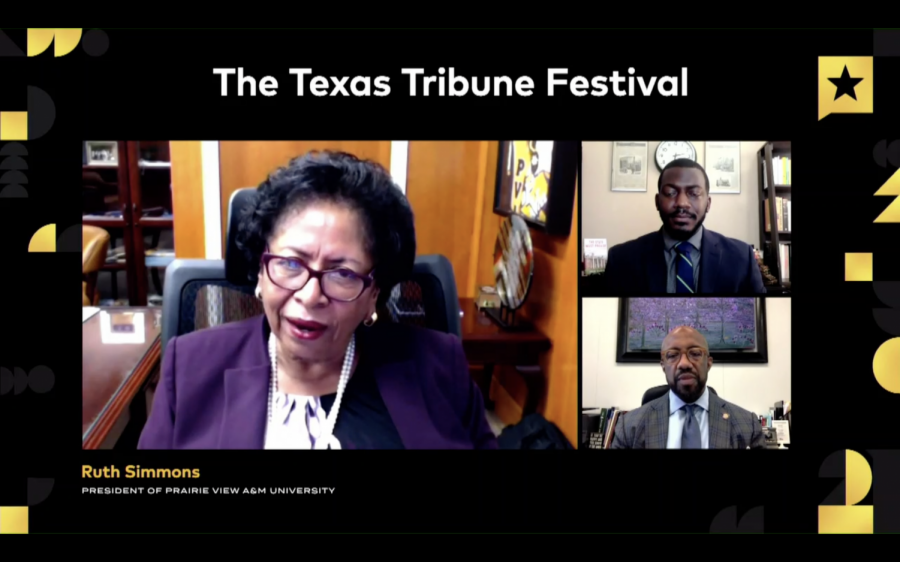HBCU presidents speak on race, equity in higher education
September 25, 2021
Historically Black higher education administrators spoke Saturday morning during the Texas Tribune Festival about the effects of the pandemic and racial unrest on historically Black colleges and universities
The speakers delved into topics such as their past experiences as undergraduates, the recent increase in support and funding for HBCUs amid the pandemic and how higher education can spur political activism.
Ruth Simmons, president of Prairie View A&M, said what college students are experiencing right now is much similar to what she experienced when she was an undergraduate with the racial division in the country.
“It’s college students who are dealing with a lot of challenges, the burgeoning civil rights movement,” Simmons said. ”The political divisions in the country. When I look at my students, I think about what they’re going through, and I think to myself, it’s not so dissimilar from what I was experiencing as a teenager. The George Floyd incident. Following that, all the political activism divisions in the country today.”
Michael Sorrell, president of Paul Quinn College, said while he didn’t go to an HBCU, he went to a college where students were engaged in trying to identify and fight for justice. The college’s idea of empowering oneself to create change influenced how he sees the world today and is what attracted him to the school.
“The greatest gift I think that we can give our students is an environment that spurs them to be critical consumers of their life’s experiences,” Sorrell said. “To look at things and say, ‘I want something better. I want something different. I have the confidence. I have the character. I have been given the tools to affect change that I want to see.’”
Simmons said despite the recent funding HBCUs are receiving, the pandemic has still negatively impacted them. Even so, she said they must keep their eyes focused on the future through whatever they experience.
“We cannot afford to falter, no matter what the circumstances, including a pandemic, including financial issues, including bubbles like we’re in now where we’re getting extraordinary support,” Simmons said. “We have to see beyond that and plan for the future.”
For years, the state never funded HBCUs, Sorrell said. Even with the recent support for HBCUs, it is still an uphill battle they are fighting for money, he said.
“We have no interest in being an average institution or struggling institution,” Sorrell said. “We want to be one of America’s great small colleges. And to do that, there’s a nod to economic resources that you have to give. You can’t have A-list ambitions and D-list funding. It doesn’t work that way.”
As HBCUs have evolved throughout the years, Simmons said the universities’ leadership should be in tune to the needs of it’s community instead of trying to imitate other institutions.
Simmons said when she arrived at Prairie View, she noticed how they didn’t have any robust study of African American history and culture. She said institutions should not ignore the racial tensions of the past in its curriculum.
“Prairie View should not aim to be Texas A&M, it should be aimed to be Prairie View A&M in line with the fact that its current campus is located on a former plantation, in the fact that slaves are buried on the property that we occupy,” Simmons said.



